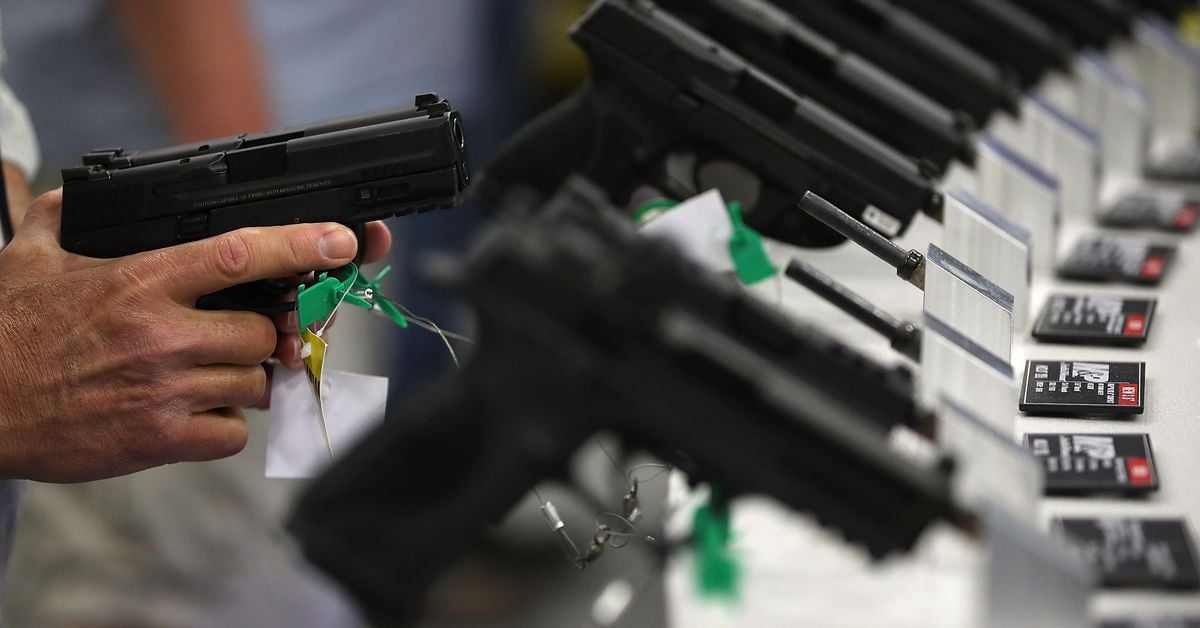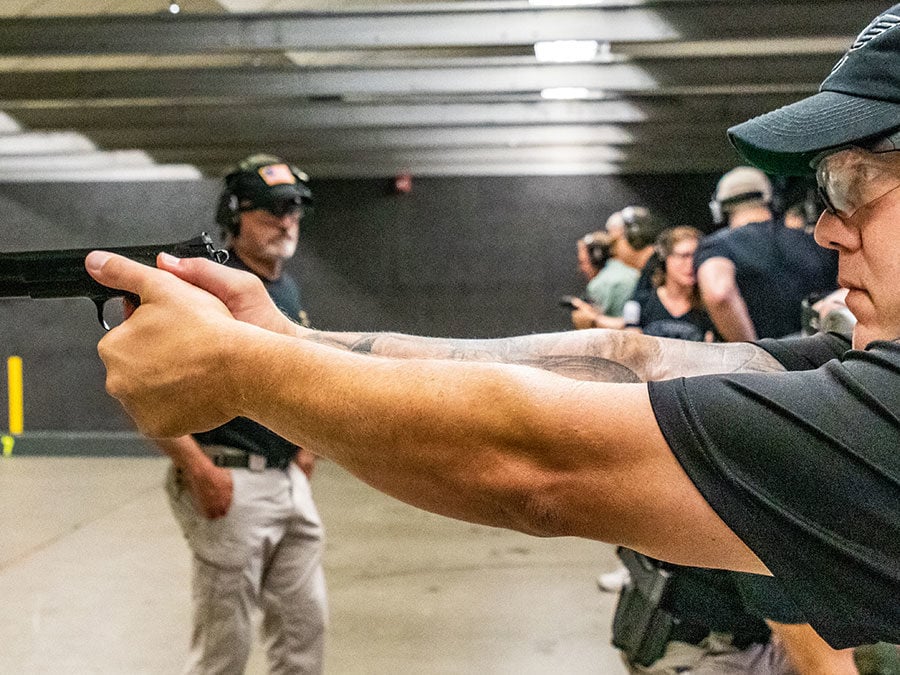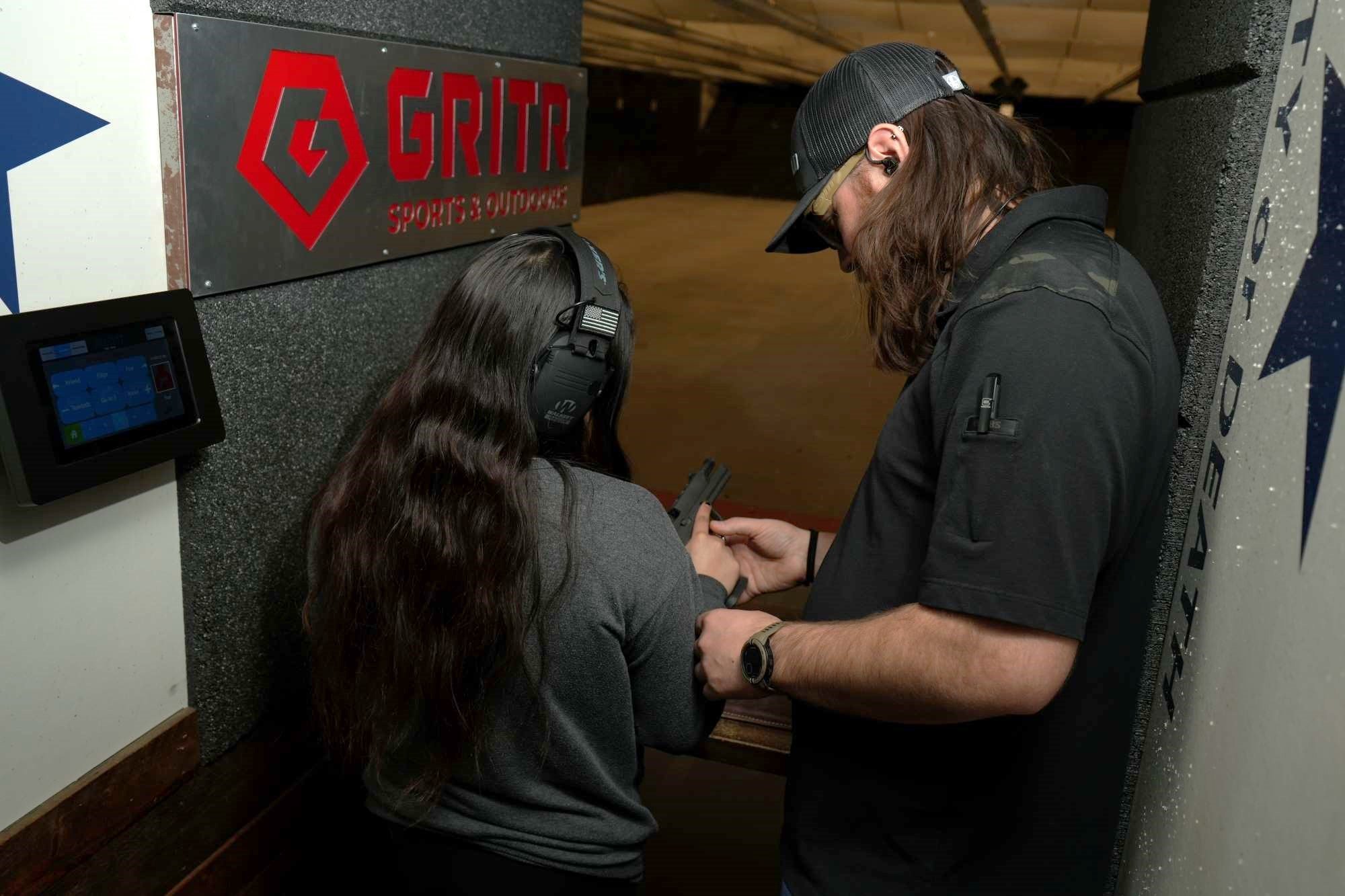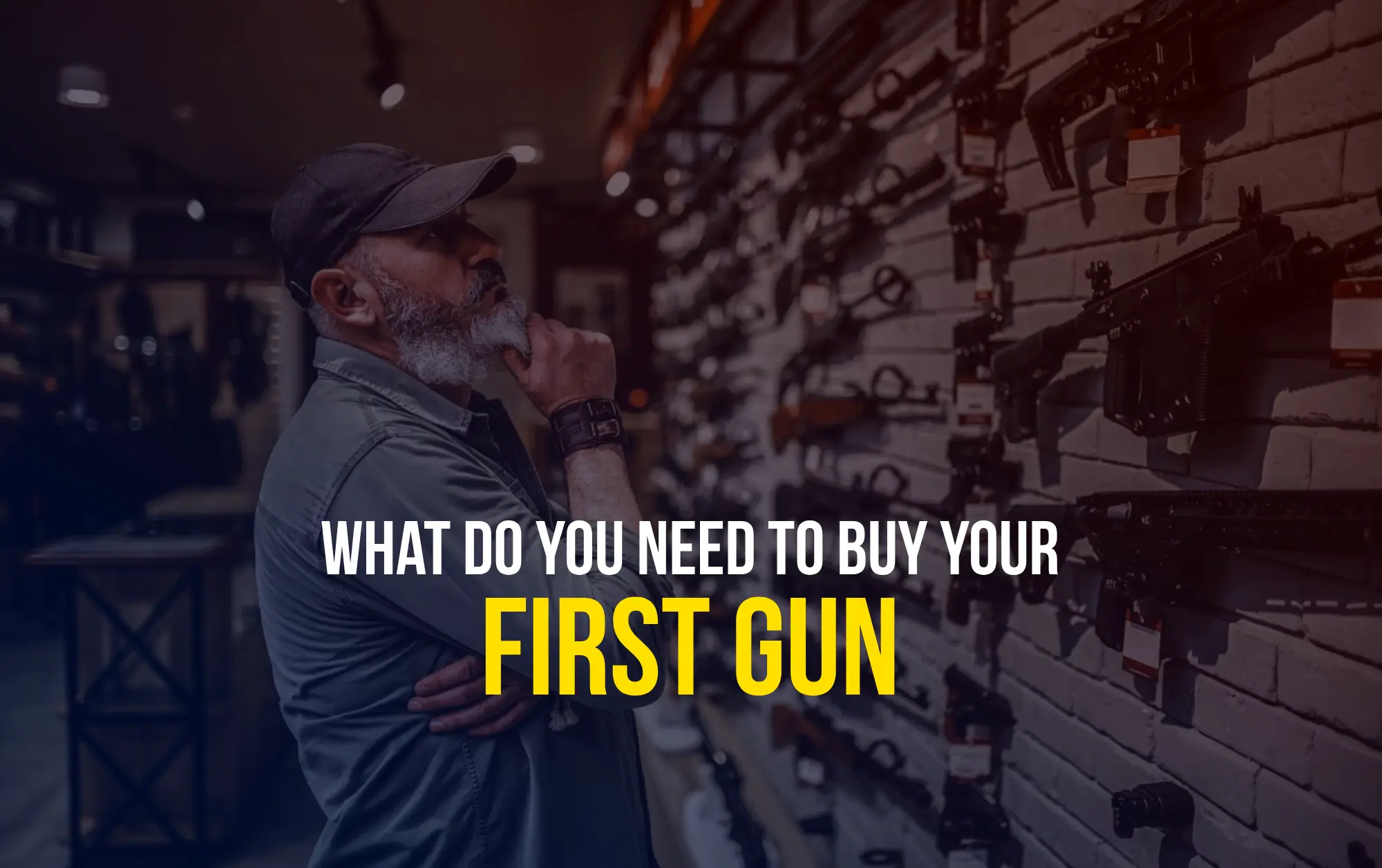Based on industry data, there were about 4.2 million first time gun owners in 2022 and 4.3 million in 2023. While 2024 numbers aren’t final yet, the FBI’s National Instant Criminal Background Check System (NICS) has already processed over 6 million checks, suggesting there could be another million new gun buyers this year. Buying your first gun involves more than just selecting a model; it takes a certain level of preparation, knowledge, and training. To help you navigate this decision, here’s a guide for first time gun buyers, covering everything you need to know before buying a gun.
Table of Contents
Know Federal & Local Gun Laws
Getting a handle on gun laws is the first step to being a responsible gun owner. Start with federal laws—they lay the groundwork. Then, dive into your local laws. These can vary widely, even between nearby counties or cities. What kind of firearm you can own, magazine capacities, legal accessories, storage rules, and whether you need a permit, license, registration, or training all depend on where you live.
Some states use permits and licenses to tighten control over gun sales. For example, to buy a handgun, you’ll need a license or permit in:
- Connecticut
- Hawaii
- Illinois
- Iowa
- Maryland
- Massachusetts
- Michigan
- Nebraska
- New Jersey
- New York
- Rhode Island
- The District of Columbia
Buying long guns is less regulated. Only Connecticut, Hawaii, Illinois, Massachusetts, New Jersey, and D.C. require permits or licenses to purchase a rifle or shotgun.
First time gun owners should also check out any gun training requirements in their area. As of January 1, 2024, 8 states and the District of Columbia have laws requiring some form of safety training before you can buy or carry a firearm. Massachusetts, Washington, and California require training for both handguns and long guns. D.C. takes it further by mandating safety training before registration, which applies to new gun purchases and those moving into the area with guns they already own. Connecticut and New Mexico require training specifically for carrying firearms.
So, if you’re in California, Connecticut, Hawaii, Maryland, Massachusetts, New Mexico, Rhode Island, Washington, or D.C., you’ll need to complete some firearms safety training to buy a gun.
As for concealed carry laws, by January 1, 2024, 27 states have adopted laws allowing individuals to carry concealed weapons without obtaining a permit. Mississippi, for example, allows concealed carry without a permit as long as the gun is in a holster or similar holder. In contrast, 23 states and the District of Columbia adhere to shall-issue laws, meaning law enforcement must issue permits to applicants who meet the criteria.
Remember, ignorance of the law is never an excuse. It’s your duty to be informed and compliant with both federal and local legislation.

Tip: Turn to Your Local Gun Store for Knowledgeable Assistance
Actually, one of the smartest first steps to owning a gun is finding a reputable local gun store. We’re talking about those smaller, independently owned stores. Why? Because the staff at these local shops are often seasoned gun enthusiasts who genuinely know their stuff. They’re up-to-date with local regulations, understand the latest trends in gun safety, and are more than willing to share their expertise with you. The experts at your local gun store can guide you based on your needs and goals.
A Quick Guide to Federal Regulations
Federal laws set the groundwork for gun ownership in the U.S., and knowing them will help you navigate the process of buying your first gun smoothly. Let’s dive into the essentials.
Background Checks
First up is the background check. If you’re buying from a Federal Firearms Licensed (FFL) dealer, you’ll need to fill out the ATF Form 4473, which is the Firearms Transaction Record. This form checks your eligibility to buy a gun and asks you to confirm that you’re legally allowed to make the purchase. Don’t take this lightly—you must fill it out truthfully as the consequences of lying can be severe.
Once you submit the form, the dealer sends your info to the FBI for a background check through their databases. If everything checks out, and your background is clear, you have a 30-day window to complete your purchase. If you miss that window, you’ll need to fill out another ATF Form 4473 and start over.
When buying a gun from a private seller, many states don’t require background checks for private sales, but some states have their own rules, so again, check your state’s specific laws.
Eligibility Requirements
Make sure you’re eligible to purchase a gun. Here are the age limits:
- To buy a handgun or handgun ammo from a licensed dealer, you must be 21.
- For long gun purchases, the age limit is 18.
When buying from an unlicensed dealer, the rules are less strict, with an 18-year-old minimum for handguns and no minimum age for long guns. Federal law prevents those under 18 from possessing handguns, but there are exceptions for work, sports, or defense, with written parental consent.
Note that states may impose their own age limits for long gun ownership. Plus, they may set an alternative minimum age for possessing a pistol.
Also, certain groups are banned from purchasing firearms, including undocumented immigrants, felons, fugitives, and anyone with a restraining order. Those with a domestic violence misdemeanor, dishonorably discharged from the military, abusing drugs, or deemed mentally unfit are also prohibited.
NFA Firearms & Devices
The National Firearms Act (NFA) regulates certain categories of firearms and devices that demand extra paperwork and background checks to legally own. The NFA covers short-barreled rifles (SBRs) with barrels under 16 inches, shotguns with barrels under 18 inches, and any weapon modified to be under 26 inches in length. Machine guns, silencers (technically called firearm mufflers), and certain explosive devices also fall under this category.
Before you can purchase these items, you must complete additional paperwork, involving an ATF Form 4 for the transfer. You’ll also undergo more intensive background checks and pay a $200 tax stamp for each NFA item. The approval process can take several months.
Get Beginner’s Gun Training

While not every state requires a safety class before purchase, we can’t emphasize enough the importance of taking a gun safety course. These courses provide a strong foundation, covering critical safety practices and up-to-date laws. Even if you’ve had some informal training from family or friends, it doesn’t cover everything—missing some essentials could lead to danger in the future.
Attending a formal safety course allows you to ask an experienced instructor all kinds of questions in a comfortable, learning-focused environment. To get started, consider talking to your local gun store; they might even offer classes themselves.
For those living in the Dallas-Fort Worth area, Texas, GRITR shooting range provides beginner rifle and pistol courses tailored for new gun owners. These courses focus on gun safety, handling, and secure home storage. And if you haven’t bought your first gun yet, don’t worry—we offer rental guns.
Identify Your Reasons for Wanting to Buy a Gun
As you get closer to buying your first gun, it’s important to understand why you want to own one. People have various reasons, from home protection and self-defense to hunting, target shooting, or starting a collection.
Protecting your home and family is a common motivation, leading many to consider home-defense options like an AR-15 rifle or pistol, or a 12-gauge shotgun. AR-15 pistols in 5.56 NATO, 300 Blackout, or 10mm are more maneuverable than AR rifles and offer more capacity, manageable recoil, and higher power than full-size pistols. If local laws restrict “assault weapons,” consider shotguns like the good old Mossberg 590A1 or high-tier options like Beretta A300 Ultima Patrol and Benelli M4.
For self-defense, you’ll want a firearm that’s easy to carry and conceal. Popular options include compact 9mm pistols like the Glock 19 & 43X, Sig Sauer P365 lineup, Smith & Wesson EZ, Staccato CS, Walther PDP lineup, and Springfield Hellcat Pro.
If you’re looking to hunt, the type of game you’re after will dictate your choice of firearm and caliber. Rifles are typically the go-to for larger game, while shotguns are preferred for birds and smaller animals.
For those interested in the sport of shooting itself, find a gun that suits your style and type of competition, whether it’s dynamic or precision shooting competitions. Many people start with a .22 caliber for target practice because it’s affordable and has manageable recoil.
Rent Firearms at a Gun Range

Before buying your first gun, we recommend testing out different firearms at your local gun range. This lets you “try before you buy” and gives you firsthand experience with various gun types and models in a safe, controlled environment.
When testing, pay attention to the weight and balance of the gun in your hand; it should feel just right—neither too heavy nor too light. Ensure you’re comfortable with the grip and can easily manipulate the gun’s controls. Also, practice loading and unloading it. Don’t hesitate to ask the Range Safety Officer (RSO) for help and always follow the four gun safety rules.
Read and Understand Your Gun’s Owner’s Manual
When you finally bring your new firearm home, the first thing you should do is to thoroughly read the owner’s manual. Each gun is unique, with its own set of features and operational instructions, even models from the same brand can have subtle yet important differences.
The manual will guide you through the specific controls, showing you how to safely handle, load, and unload your firearm. It will also contain vital information on safe operation, cleaning, and maintenance procedures to keep your gun in good condition.
So, become familiar with your firearm’s functions and handling before you ever head to the range. Remember, an unloaded gun is safer to explore while acquainting yourself with its mechanics, so ensure it remains unloaded while you learn.
Educate Anyone Living with You on Basic Firearms Safety
Having a firearm in the home means responsibility not just for yourself, but for everyone residing with you, especially if you live with children or adults unfamiliar with gun safety. First and foremost, ensure that your firearm is securely stored in a gun safe and out of reach of curious little hands. Even if your state doesn’t enforce child-access prevention laws, take it upon yourself.
For children, it’s important to explain that firearms are not toys and, like the hot stove or a sharp knife, can be dangerous if mishandled. Reinforce that they should never touch a gun and must inform an adult if they find one.
Invite older family members or roommates to join you in learning about guns. Invite them to accompany you to firearms safety courses, local gun shops, or the shooting range. This way, everyone can gain a proper understanding and respect for the handling and storage of firearms.
FAQ
The best place to buy a gun is from a reputable and licensed gun shop or sporting goods store. They have knowledgeable staff who can assist you in selecting the right firearm based on your needs and also ensure that all legal requirements are met.
The best first handgun is often considered to be a full-size pistol. Full-size pistols are favored for their larger sight radius, which can enhance accuracy for new shooters. Additionally, their greater weight provides more manageable recoil.
To buy a gun, you typically need a government-issued identification card, proof of residency, and you must comply with any state-specific requirements such as a firearm safety certificate or permit. Additionally, you must pass a federal background check conducted by the dealer.
ATF gets involved when an individual purchases multiple handguns within a short period. Specifically, if you buy two or more handguns from the same dealer within five consecutive business days, the dealer is required to report this to the ATF.
The time it takes to buy a gun can vary based on state laws and the time required to complete the background check. In most cases, purchases can be completed within a few hours if all documents are in order and there are no issues with the background check. Some states may have waiting periods that extend the process.
